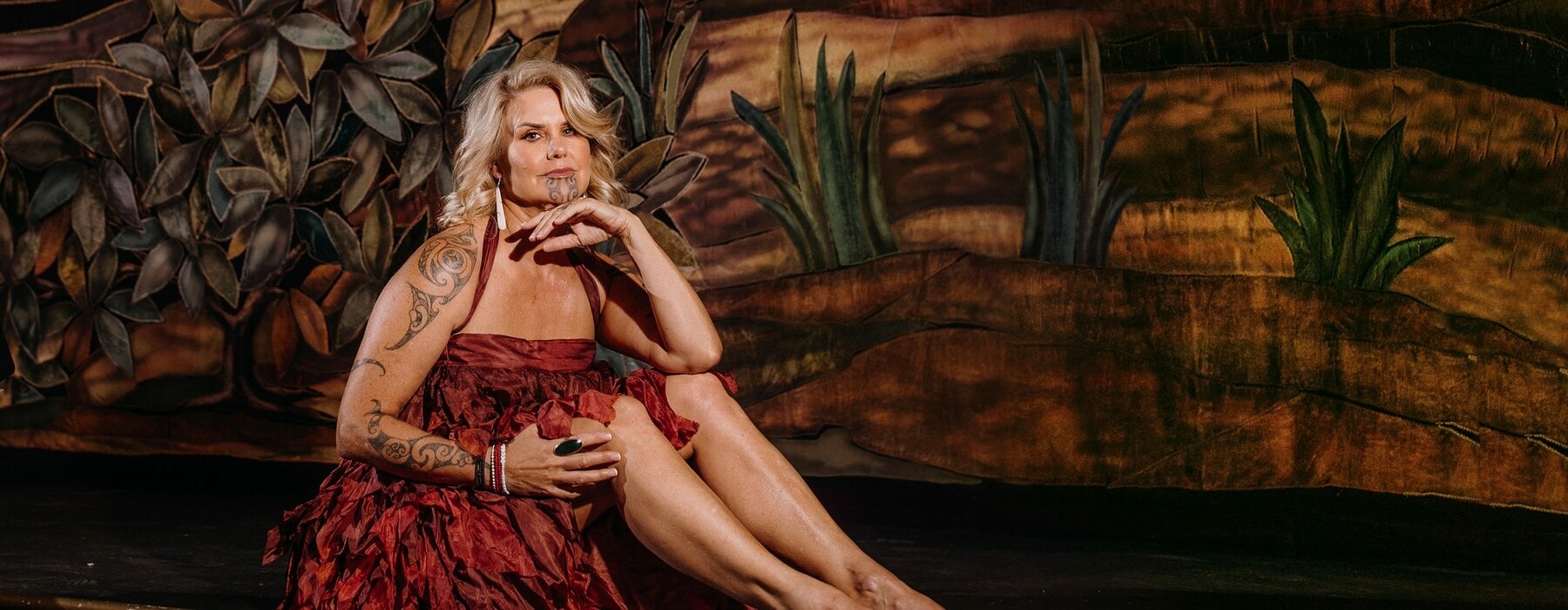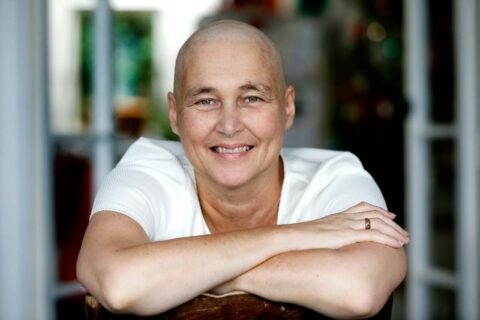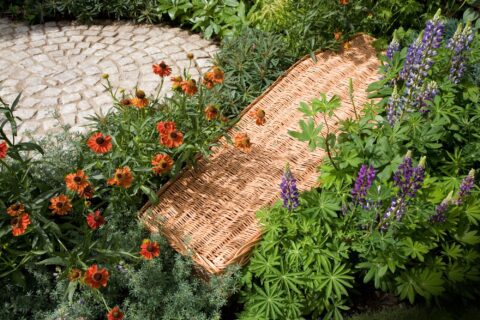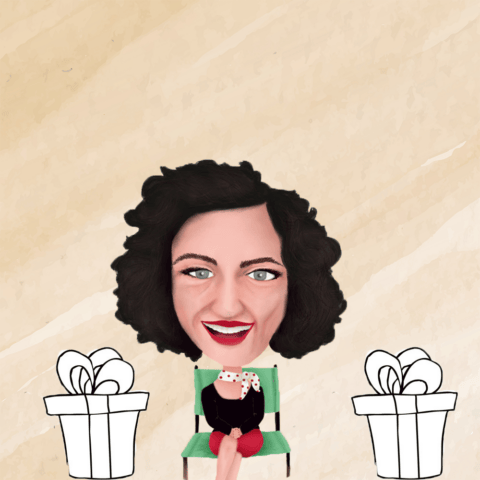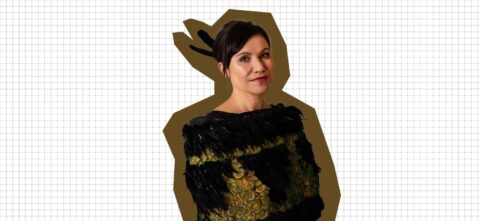Embracing tikanga Māori, Dr Hinemoa Elder is making changes in the mental health sector. She talks to Siena Yates about why creativity and connection can help with healing.
When it comes to visiting therapists and psychiatrists, we all have the same images come to mind: the shrink appraising us from behind a desk while we lie on a couch feeling judged; us saying little more than “Hello” and them scribbling furiously in notepads about Freud and inner children as a result.
While that may be a media-fuelled exaggeration, it does capture the often cold, clinical and anxiety-inducing process of seeking out professional help. But one New Zealand woman is hoping to change that from the inside out.
When you visit Dr Hinemoa Elder, you don’t start with a list of symptoms and medical histories. You start with a karakia. You start with whakapapa, as a way of finding common ground. You start with human connection.
“I think setting the scene in that way creates a very different conversation,” says Hinemoa. “I have those conversations every single day and it’s really extraordinary to see how transformative that is.”
For the mum of two – daughter Millie, 32, and son Reuben, 28 – changing conversations in this way has shaped not only her mahi in the world of medicine, but her personal life too.
Now, she works in Auckland and lives on beautiful Waiheke Island, but she spent her early years in the UK – an upbringing which set her up uniquely to embrace cultural difference. Living in inner-city Manchester, surrounded by kids from all over the world, Hinemoa’s environment was “very accepting” and differences were explored and celebrated.
But she knew about the dark side; her mother, the late Ina Bowman, had imparted knowledge of inequity through tears, telling her, “You can’t do things the Māori way, my darling, because you’ll never get anywhere”.
What her mother said and what she truly felt, however, must have been at odds, because looking back, Hinemoa recalls, “My mother was so Māori, she was all about the manaaki and she imparted that Māori identity.”
Her mother passed in 1991 after a battle with breast cancer, an event which famously prompted Hinemoa to become a doctor. But it also inspired her to rewrite not only her own narrative, but the one her mother had internalised too. She embarked on a journey to learn te reo Māori and that became “a massive part at the heart of” her reclamation of her culture and her place in it.
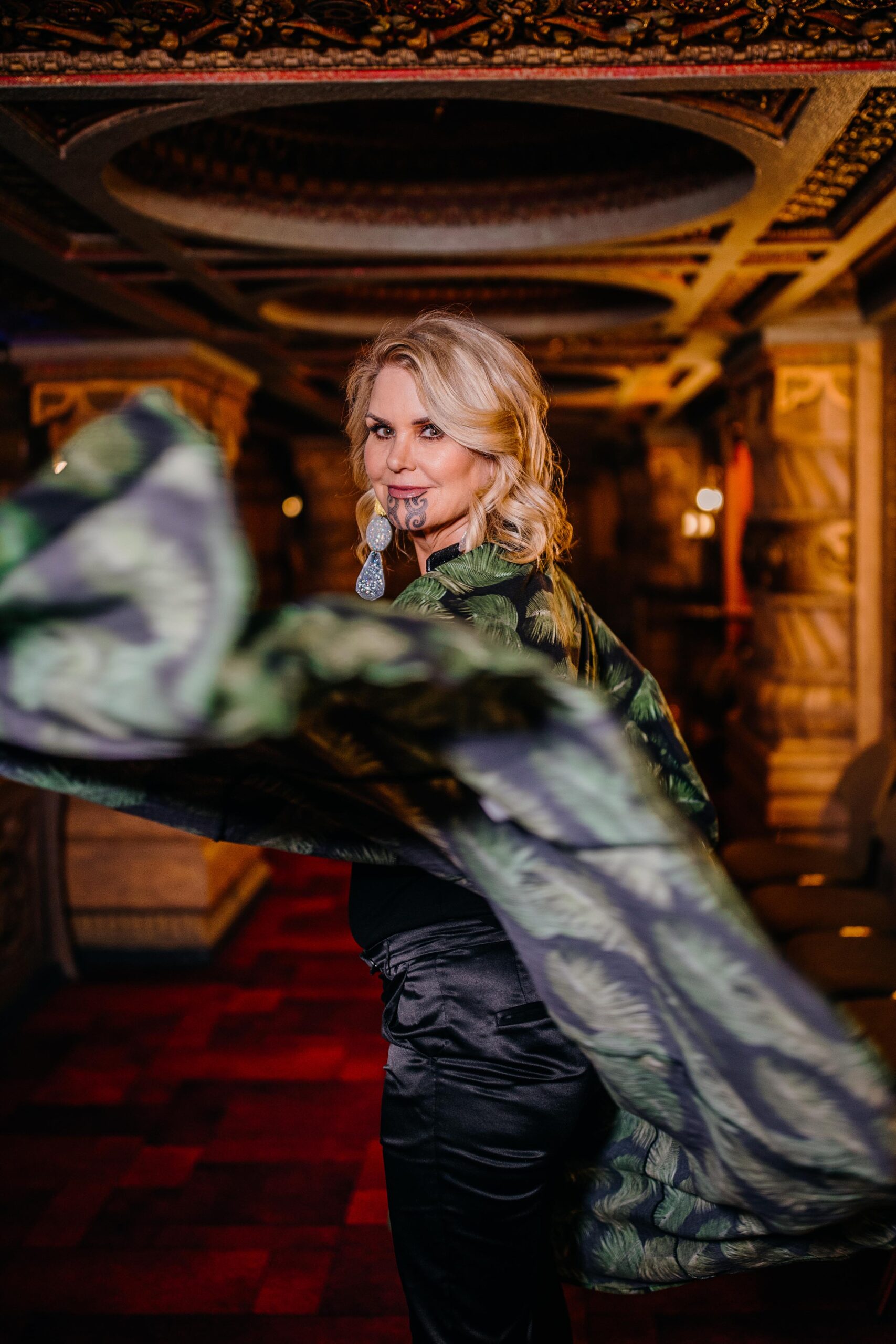
Now, she’s unapologetically, staunchly Māori – a beautiful and proud moko kauae wearer, a doctor dedicated to a better future for the collective and a fierce advocate for her culture, reo and people – and she’s using that to help find new ways to not only heal her people, but to care for them in the first instance so they might not need to heal at all.
Hinemoa knows all too well how intimidating health services – and especially mental health services – can be for anyone, let alone for Māori. She’s been a leader in her field for more than a decade, specialising in child and adolescent psychiatry and traumatic brain injury, and doing so through a Māori lens, earning herself an appointment to the New Zealand Order of Merit for services to psychiatry and Māori.
She’s seen her people suffer – including her own brother, who died by suicide – because they were unable to get the help they needed. Her move into medicine wasn’t just to help people like her mum; it was because she saw the disparity in how her mother was treated in the public health system. She realised “there’s a different response to our whānau in healthcare provision”, and she had to do something about it.
“There are expectations our people have going into health services and sometimes they can be quite negative, based on their own experience of feeling judged, of frankly racist interactions, and we all know that’s a reality.”
Knowing that and seeing how it affected her own family, “was a big part of my motivation to do things differently”.
“I’m just doing my small part to counteract that, and my line in the sand is that I’m absolutely, firmly, completely Māori in these interactions and standing up for that best as I can: speaking our language, upholding our values and using those values and that tikanga in my daily practice.”
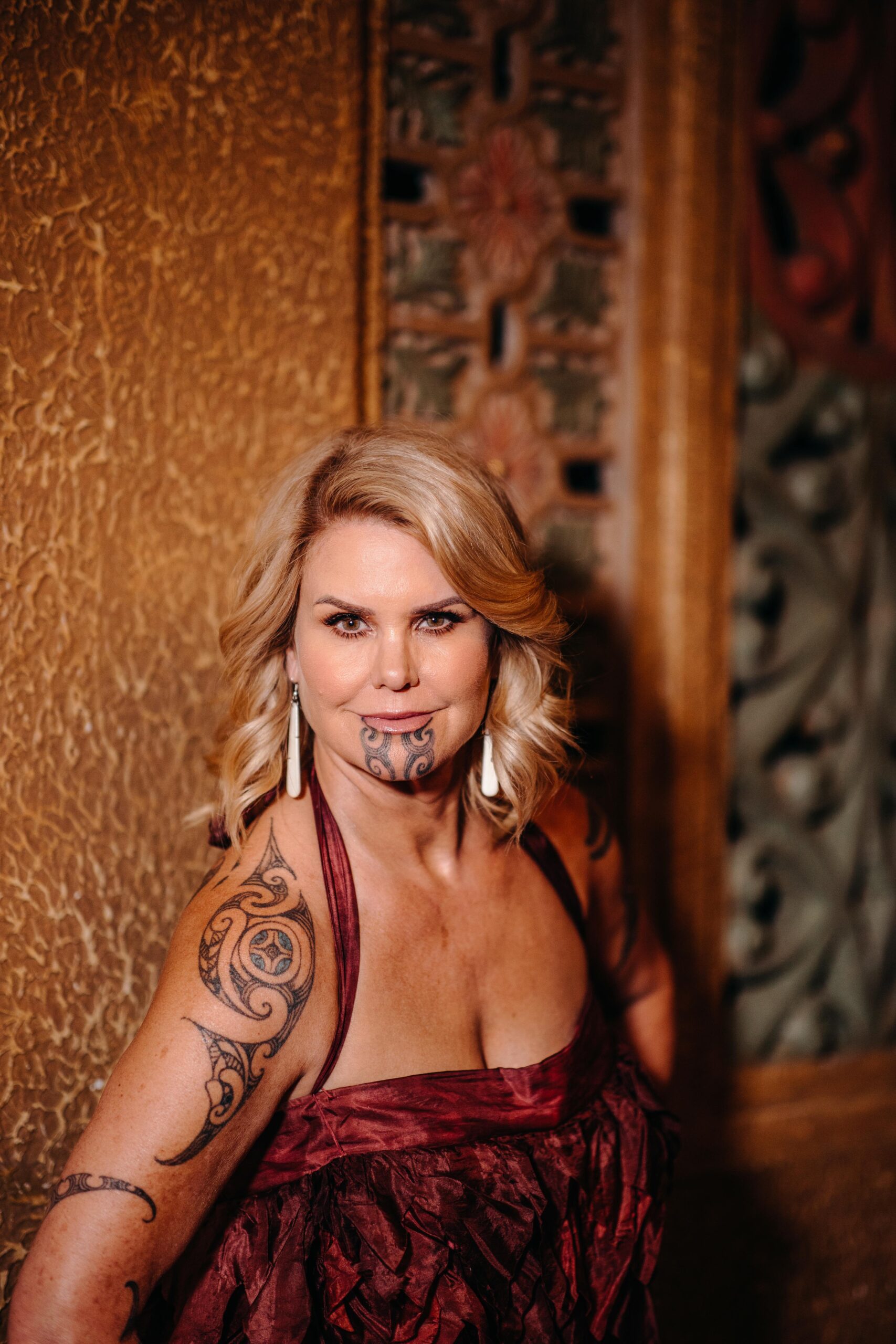
PHOTO BY EMILY CHALK
That even applies to the treatments she prescribes, which are often rooted as much in mātauranga Māori as they are in Western science.
The most surprising one? The arts.
Hinemoa is currently serving as an ambassador for this year’s Auckland Arts Festival. She used to be a creative herself; she spent years as a dancer, choreographer and dance instructor, served as chair on the boards of the Auckland Theatre Company Trust and the Arts Regional Trust, and she came to prominence in Kiwi households as a TV presenter. But that’s not why she’s part of the festival.
“The arts and creativity are essential for wellbeing, for hauora,” she says simply. And if you found that as unexpected as we did, she adds, “Well, welcome to my world!
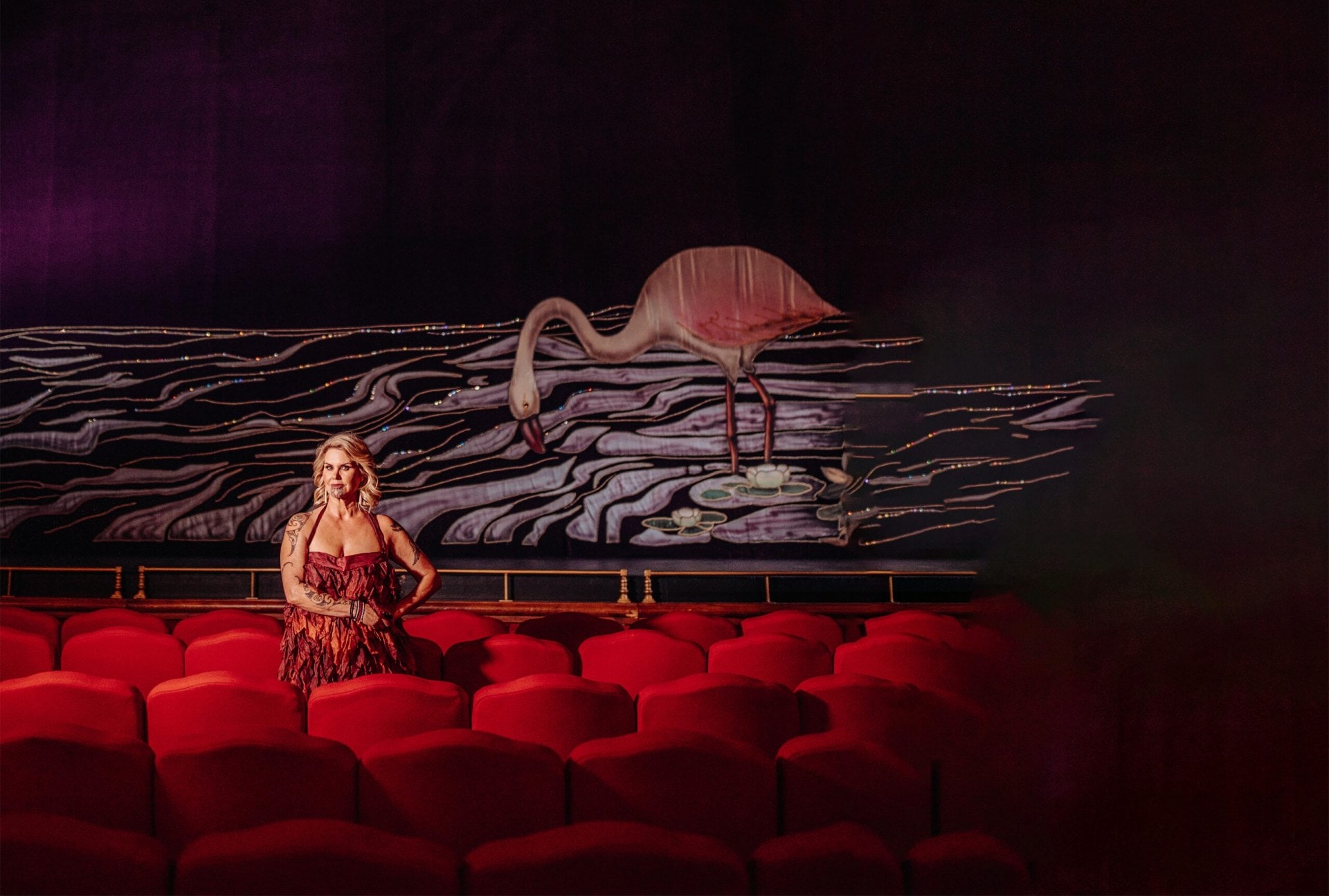
PHOTO BY EMILY CHALK
“[The arts] are something I often prescribe. It’s a natural part of our responsibility as health practitioners to think holistically,” she explains. “What are the things that are protective of people’s wellbeing? What are the things that are preventative of ill health and disease? Creative expression is absolutely part of that.”
It’s a natural part of our responsibility as health practitioners to think holistically. Creative expression is absolutely part of that
For instance, she says, “Did you know that when people have had a stroke, sometimes they can’t speak, but they can sing?”
That’s why, at Brain Research New Zealand – where Hinemoa is the Māori strategic leader – there’s a choir for people who have suffered strokes, so they can “begin to express themselves through singing”.
There’s also “a huge body of research” around the benefits of music therapy and, because of that, Hinemoa was involved in setting up the Raukatauri Music Therapy Center in Auckland in 2004, alongside Māori musician Hinewehi Mohi.
What an event like the AAF adds to the healing power of the arts is the importance of community – particularly after Covid-19 changed the way we live.
The pandemic, Hinemoa says, has taught us three very important things.
One is that Māori cannot rely on Pākehā systems and have to help ourselves – much like when it came to cutting off outsiders from visiting iwi lands during lockdown, to protect local kuia and kaumātua.
“Our people have had to take matters into our own hands and not wait for the government or the local council, and I fully support that; we have to do what’s right. I’ve been on lots of Zoom calls with other people around the world and I’ve talked about how the Spanish flu is within living memory of our whānau.
“And the reality of our death rate being around eight times that of Pākehā is an absolutely tangible, painful reminder that we can’t rely on those other systems. We have to protect our whakapapa; we have to protect the absolute preciousness of our people.”
We have to protect our whakapapa; we have to protect the absolute preciousness of our people
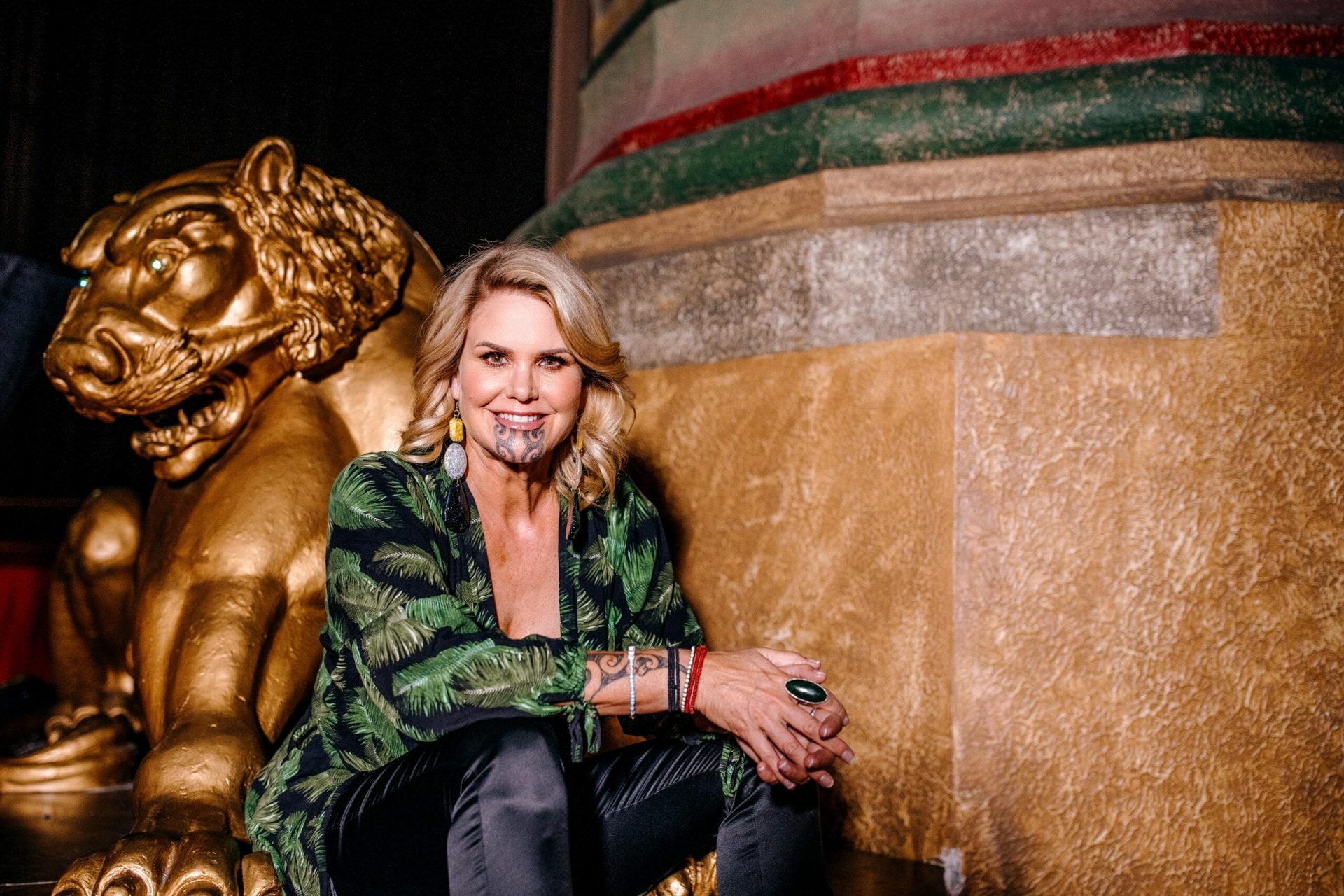
The other thing is that we need to look to te ao Māori to find the ways we can do that best, particularly when it comes to health and wellbeing.
“Some people have these ideas of health as coming only from some sort of health service, which is not correct,” Hinemoa says. “We’ve known that for a long time but, unfortunately, people’s experience tends to reinforce this idea that when you have a problem, you go to a health service.
“I’m more interested in what we do to prevent the need for that in the first instance. Particularly in mental health – how can we make sure creative activities are options for people when they need some sort of treatment? I advocate kapa haka, waka ama, mau rākau, waiata, te reo. As far as I’m concerned, te reo is a rongoā, it’s a medicine.”
And then, of course, Covid taught us how integral connection is to mental health, especially for Māori.
“That connectivity which we’ve experienced the suffering of not having, of not being able to connect, not being able to hongi, not being able to go to tangihanga – and I hope that means now we can more deeply appreciate each other, because that’s such a big part of our health and wellbeing. Especially for us [as Māori] when we’re already living with such inequities and different kinds of stress and heightened anxiety.”
Those stresses are what plagues many Māori in need of help who cross Hinemoa’s path and, she says, when you look at the rates of mental health issues and suicide for Māori, “the evidence is absolute”.
“We have lived and survived, warts and all, through systems in which all the things that were known by the colonisers that made us healthy and happy, contented and in harmony with our natural environment have been systematically taken away. That’s what colonisation does,” she declares.
What’s worse, she says, is that a lot of that is internalised. Through her work, Hinemoa encounters many young people who are in trouble with the law and who have “such a deep sense of longing to connect”, but can’t find the pathway to do that.
“They’ve seen other generations really struggling, they’ve seen people in a lot of pain and they’ve seen a lot of death. They’ve seen, up close and personal, the cost of being Māori.
And they’re smart, they’re savvy, so they’re like, ‘Whoa, do I really want to be part of that?’ It’s a painful journey and there’s a lot of discrimination, racism, put-downs and judgement in that journey; I just need to turn on the news and I can see every night that being Māori means you’re lazy, you’re a criminal, you’re a stone-age people.”
The casual reference to John Banks’ recent headline-making comments on Magic Talk Radio is hard to bypass. The former politician was taken off air after agreeing with a caller’s comments that Māori were a “stone-age people with a stone-age culture”, “genetically predisposed” to crime, with John adding that “if their stone-age culture doesn’t change, these people will come through your bathroom window”.
It caused a nationwide uproar, but Hinemoa, stunningly, embraces it.
“Honestly, I’m loving it,” she admits. “I’m bringing that back. I’m proud to be stone-age. People say it as if it’s negative, but our stone-age tikanga is incredible. We had a rāhui [restricting access to land or resources] on Waiheke the other morning, and that’s our stone-age culture.
I’m proud to be stone-age. People say it as if it’s negative, but our stone-age tikanga is incredible
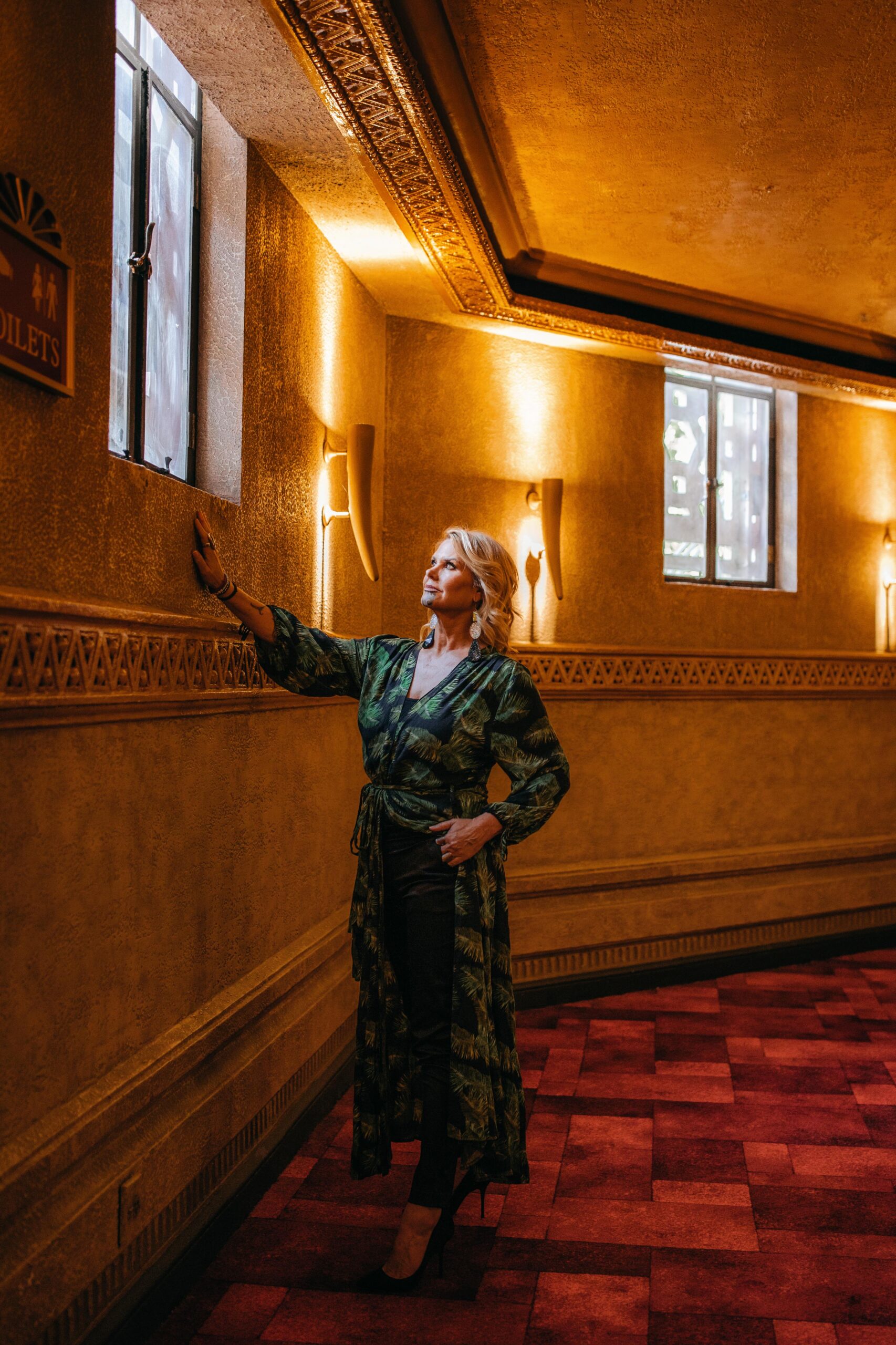
“It’s so relevant, and it’s incredibly powerful and useful – especially in these times of climate emergency.”
That’s why, sitting on the Auckland waterfront, waiting for a ferry to carry her home to Waiheke, Hinemoa’s positivity for what lies ahead never falters – she even smiles when a ferry blasts its horn, interrupting her sentence, and she sings back, “Kia ora!”
That positivity and the ability to reclaim a narrative might be why, even on the topic of “stone-age people”, she has nothing but joy. That, it seems, is the key to healing. Like she says, “Stone age people… it’s said as a put-down, but nah. It’s not a put-down to me.”
A grin spreads across her face and she throws her hands in the air without a care for who’s around us and shouts with glee, “Queens and kings of the Stone Age, rise up!”

